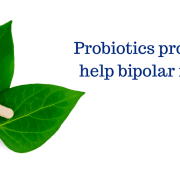Use of Nutritional Interventions in Depression and Perinatal Depression (Premium)
Millions of women suffer from depression. When a woman is depressed during pregnancy, the risk for birth difficulties and other complications increases. However, the use of standard antidepressant medications also poses risks for pregnant and lactating women. A research article published in Yale Journal of Biology and Medicine explores the use of nutrients to alleviate perinatal depression.
The abstract and full article link are provided below.
Abstract: “Depression is the leading cause of mental disability worldwide. Women who are depressed during pregnancy are at a higher risk for preterm delivery, preeclampsia, birth difficulties, and postpartum depression. The treatment of depression in conventional medicine has focused on physiological factors that lead to impaired neurotransmitter function and treatments to improve neurotransmitter function. Pharmaceutical substances pose risks for pregnant and lactating women, and lower risk options are preferred. Micronutrients, including certain B vitamins, folate, and docosahexaenoic acid (DHA), play a role in the synthesis and absorption of neurotransmitters. Experimental studies suggest that supplementation with specific micronutrients may alleviate depressive symptoms and improve birth outcomes in patients with perinatal depression. Alternative treatments for depression, including nutritional supplements, are an important treatment option for depressive symptoms while limiting potential side effects and treatment costs.”








